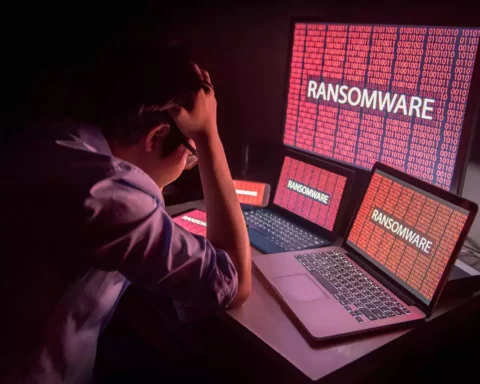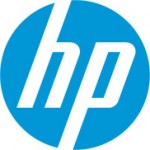Reinforces commitment to foster culture of disruptive innovation building on the success of last year’s challenge as well as momentum from two public-private collaborations, Atal Tinkering Laboratories and Plugin, this year
Continuing its vision to create a sustainable ecosystem of innovation in the country, Intel India today has announced the Intel & DST  Innovate for Digital India Challenge 2.0 (“Challenge”), building off the success of the inaugural Challenge last year. Presented in collaboration with MyGov, Ministry of Electronics and Information Technology (MeITY), and T-Hub Foundation, this year’s Challenge also aims to inspire grassroots innovation and harness local talent, by inviting makers across India to build solutions to accelerate India’s digitization and commercially develop their prototypes on Intel® Architecture.
Innovate for Digital India Challenge 2.0 (“Challenge”), building off the success of the inaugural Challenge last year. Presented in collaboration with MyGov, Ministry of Electronics and Information Technology (MeITY), and T-Hub Foundation, this year’s Challenge also aims to inspire grassroots innovation and harness local talent, by inviting makers across India to build solutions to accelerate India’s digitization and commercially develop their prototypes on Intel® Architecture.
Based on the philosophy of ‘Challenging India’s Challenges’, this initiative adds to Intel India’s larger goal of enabling technology innovation in the country, for students, entrepreneurs, and any other makers, who are passionate about creating viable solutions to address everyday problems, related to sustainable access to healthcare, livelihood, and finance, faced by citizens.
On the sideline of this announcement, Mr. K. T Rama Rao, Minister of Information Technology, Government of Telangana said, “It is heartening to see public private collaborations, such as the one between Intel India, MeITY, MyGov, and T-Hub, driven towards building a long-term innovation culture in the nation. I am certain that this initiative will bring some breakthrough ideas and ingenious innovations to the table, and strengthen India’s position as a knowledge economy.”
Ms. Debjani Ghosh, Managing Director, and Vice President, Sales & Marketing, Intel South Asia, said, “Innovation is the key ingredient for making the Digital India vision a reality, and we need a local, sustainable innovation ecosystem, to address the country’s challenges. Our goal is to foster innovation at every level – from school to colleges, and from entrepreneurs to enterprises. With this announcement today, we continue to create a community of makers who build solutions to enable the scalability of technology adoption in India, and increase the impact of technology on citizens’ lives. Through strong public private collaboration, wherein MeITY, MyGov, T-Hub, and Intel India are working together to turn ideas to solutions, disruptive yet sustainable technology innovations are now a reality.’’
Intel India has an end to end approach to advancing innovation & research. The company has created a strong innovation pipeline and ecosystem, based on public private collaboration that target K-12, researchers, and makers and provide them with not just funding, but also with consistent mentoring and market access. Through its recent collaboration with think tank NITI Aayog, Intel India is working to establish tinkering laboratories for mini makers in ten schools across the country. Better known as Atal Tinkering Laboratories (ATLs), these facilities will serve as an exemplar for 490 ATLs to be launched by the government. In another recent project, Intel collaborated with Department of Science & Technology (DST) of Government of India, and Society for Innovation & Entrepreneurship (SINE), IIT Bombay to set up a new collaborative incubation program called Plugin, to support hardware and systems-based start-ups. In addition, through the Intel Tech Challenge, the company, in collaboration with the Ministry of Human Resource Development, has trained 10,000 children on ideation and maker skills.
According to Mr. H.K. Mittal, Member Secretary, National Science & Technology Entrepreneurship Development Board (NSTEDB), Department of Science & Technology, “Over the years, we have worked with Intel India to establish initiatives for the youth and professionals that give them access to technology and funding, in order to develop sustainable solutions that address challenges faced by Indian citizens. The Challenge is a model example of how great minds can come together and add value to India’s growth charter. It is with great optimism that we launch the next edition of the Challenge to accelerate innovation and entrepreneurship in India.”
The Challenge encourages the creation of easy to use, and scalable solutions to address the challenges of the country through automation and technology. It invites solutions that integrate IoT, and cloud technology to enable digital transformation experiences in the areas of agriculture innovation, healthcare access, financial inclusion, and sustainability. It is open to aspiring and existing entrepreneurs, innovators, academia, designers, engineers and makers from diverse backgrounds.
Mr. Gaurav Dwivedi, CEO, MyGov, “Last year, there were six ideas under the Challenge that completed the mind-to-market journey, and are already making their solutions available in the Indian healthcare and agriculture sectors. We are proud to support the Challenge this year, by connecting the government with entrepreneurs and innovators on our platform.”
This year, the Challenge will roll-out in five phases, with the grand finale taking place in April 2017. Shortlisted teams will be eligible to receive a INR 3,00,000 grant each, to create minimum-viable products (MVPs) based on Intel® Architecture (iA) in an accelerator program at the T-Hub incubator in Hyderabad. The winning team will walk away with INR 20,000,00 to further their project development. Mr. Jay Krishnan, CEO, T-Hub Foundation said, “Startup ecosystems, world over have had a catalyst that has sparked their growth. In Hyderabad, T-Hub is pushing this with platforms that showcase and scale innovation as the primary lynchpin. T-Hub’s partnership with DST & Intel to launch the Challenge this year, and provide a platform for aspiring innovators to showcase their ideas for building a Digital India from the grassroots level is a key cog and a start for us.”
Besides the Challenge, Intel India is also accelerating hardware design & innovation through the Intel India Maker Lab. In fact, from last year’s Challenge, seven of the top 20 participants, including the three winners, used the Maker Lab to develop and test their prototypes. Currently, there are 17 startups utilizing the lab facilities for projects in the areas of education, sports, health, agriculture, BFSI and e-governance across IOT, Cloud, and client compute.








